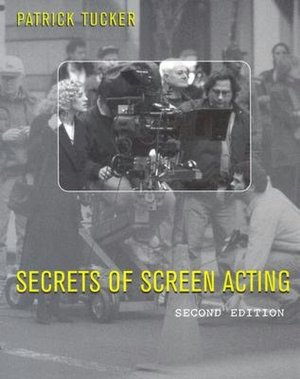
I keep getting asked about RADA and the training I did there, which is great! But I feel its still way too early to properly reflect and comment fairly on my time there. I'm still processing my experience. It was INTENSE! (We went through some things man & some stuff). It's taken me a long time to gather just a fraction of my thoughts. Advising someone about your personal experience of drama school isn’t easy. As "luvvie" as it sounds - drama training is about spiritual, physical, mental and emotional development, both for the individual and the ensemble. This kind of 'artsy fartsy mumbo jumbo' is not easy to put into words - you kind of had to have been there. BUT, I think I am finally ready to answer some simple housekeeping questions that may help you decide if the course may be for you.
The course you apply for should be influenced by your previous experience or training. It stands to reason that there in no point applying for the RADA Masters Degree if you are just starting out in your acting career. If you are still quite
young, you are lucky enough to have a few options. My advice would always be to
go for the BA or Foundation course, whether it’s at RADA or somewhere else. If you are very late teens/early 20's you're at ripe drama schools age. They like to be able to mould you into an artist of their
calibre and being too young or indeed too old can work against you.
I would apply
everywhere! If RADA is the only place you want to attend (it was the only place I wanted
to go), be prepared to be knocked back - sometimes more than once but, just keep
getting up, dusting yourself off and going back. Being turned away from a drama school is normal and the odds are especially more difficult for people of colour. You must understand that they only accept a few of our ‘type’ so you are competing against every other person of colour who
has applied and that’s probably a lot! Drama schools like
determination. If they say no this time, they may say yes next time, but you
have to stay focused and not let disappointment get to your heart.
I went to the MA Theatre Lab open day (recommended) and did a little research about the course but, I have to admit I still had no idea what the course entailed until I actually got there - neither did RADA. My course was only the second year of the MA Theatre Lab generation. We were still guinea pigs and changes to the course were constantly being made depending on what the students needed, which international practitioners could be brought in and so on. The MA Lab course this year will probably be very different to ours last year, as ours was very different to the pilot year.
The MA Lab course was
developed for people with similar backgrounds to mine – Actors who've started a professional career first with no formal training or for those who have been to University
to do a drama/theatre course but want a more practical form of training. The course is suited to older/more experienced Actors. The ages in my class ranged from 20-45. RADA are extremely good at finding the right people who will work well together. The ensemble work so closely together that whoever you are put with - you will all become family.
I don't think drama schools care particularly about previous academic qualifications. I think they are more interested in whether you have a good grasp of the English language, you're healthy and you're watchable (you know, the old je ne sais quoi).
The course was
completely practical. There was always an end of term 'paper' to write (a few hundred
words). Students must keep an on going log book about personal experiences, reflections and revelations. This is then referenced for the end of year dissertation (nowhere near the amount of words required for a University dissertation), everything else was assessed practically. The course does not just focus on acting, you will work on directing, writing, devising and movement.
Devising is a huge part of the course, you will study a particular practitioner and then devise pieces using his/her techniques (mixed with your own of course). For example you may work on a piece by Ibsen using a Meyerhold technique. Everything goes hand in
hand. You learn the technique, you devise a piece, you perform said piece then
you move onto the next.
I cannot stress enough that the course is VERY
INTENSE because they are squashing 2-3 years of training into 1 year. It’s VERY
physical. It’s VERY demanding, you will have NO social life but, having said that it is doable! If the desire to succeed is there.
It is a little like going back to school in the sense that you will always be working with people who have different likes/dislikes and so some will put in more effort to some modules than others. There will be frustrations, there will be arguments, there will be back blighting and bickering but on the whole the class will be mature enough to see the common goal and work together.
BE PREPARED FOR THE WORKSHOP/AUDITION! The delivery of your monologues is important but just as important as the physical boot camp they put you through. You've never known a work out like it! Insanity?! Pah! Insanity who!? You may bleed, faint, throw up and or cry. The audition activities are to prepare you for the actual course because that is what you will do EVERY day.
At the end of the year there is a showcase and I have to say ours was pretty good. Not the usual few monologues, bit of a song rubbish. You will devise a show from scratch!
I always say that
Drama School was the worst and the best year of my entire life – at the
same time. Don’t expect this to be a walk in the park. I think a lot of people go the drama route because they see it as a holiday. This course is a holiday - if you holiday in hell.
You will be dragged so
far out of your comfort zone you won’t know what hit you. You will do all of
those clichéd things you hear about drama schools that make you cringe but, you
will learn WHY you must do these cringe worthy exercises. Again - on this course you'll cry, you'll bleed (yes real blood), you'll sweat, you'll fight, you'll spit, you will be defeated - only to rise up and have it all happen to you over and over again. The Theatre Lab course It is
NOT for the faint hearted.
For this course you have to put what you know and what you think you know aside and just go for the ride. You will find that there are some things that just aren't for you - there were tons of things that weren't for me but you have to just try and get involved.
Would I go again? Hmmm - it's still too early to tell. I am not yet fully recovered from my time there. Do I regret going? Not at all! But I did go into the course very naively. I needed and wanted technical training and that I got. Looking back there are a few things that I would have done differently, but it is what it is.
Has it made a difference to my career? Slightly
Did it have the huge life changing impact on my career that I thought it would? No.
Did it have a huge impact on me as a person? Absolutely.
Am I a better Actor for it?
Abso-bloody-lutely!!!
Abso-bloody-lutely!!!



















